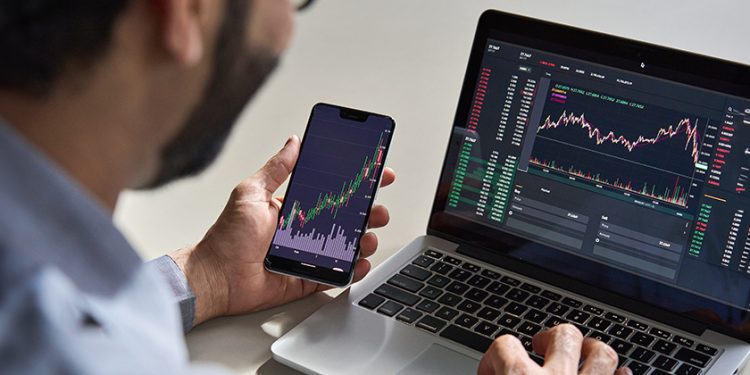Forex trading, short for foreign exchange trading, involves the buying and selling of currencies in the global market. It operates on a decentralized network of financial institutions, corporations, governments, and individual traders. The goal is to profit from fluctuations in exchange rates between currency pairs, like EUR/USD or GBP/JPY.
Traders speculate on whether a currency will strengthen or weaken against another. Various factors influence this dynamic market, including economic indicators, geopolitical events, and central bank policies. With high liquidity and accessibility, forex trading provides opportunities for investors worldwide. However, it also carries a significant level of risk, requiring a solid understanding of market dynamics and effective risk management strategies.
Begin your investing journey today. Your Demat account is the first step.
Topics Covered :
Top 5 Forex Trading Risks
Forex trading is undoubtedly an attractive financial endeavour with the potential for substantial profits. However, it comes with inherent risks that traders must understand and manage effectively. Let’s explore the top 5 Forex trading risks, explaining each in detail and offering insights into risk mitigation strategies.
1. Market Risk
Market risk, often referred to as price risk, is the primary risk associated with Forex trading. This risk stems from the inherent volatility of currency markets, where prices can fluctuate rapidly and unpredictably. Several factors contribute to market risk.
Economic Data Releases
Forex markets react swiftly to economic data releases, such as employment reports, GDP figures, and inflation data. Positive or negative surprises in these reports can trigger significant price movements.
Geopolitical Events
Political instability, conflicts, and geopolitical developments in countries with widely traded currencies can profoundly impact exchange rates. Traders must stay informed about global events.
Market Sentiment
Market sentiment, driven by factors like news, rumours, and traders’ emotions, can lead to sudden price shifts. For example, a tweet from a prominent political figure can influence market sentiment and currency values.
Market risk can result in substantial gains or losses, depending on the direction of price movements. Traders often use technical and fundamental analysis to mitigate this risk to make informed decisions. Additionally, setting stop-loss orders can limit potential losses by automatically closing positions if prices move against the trader.
Recommended Read: What is Forex Trading
2. Leverage Risk
One of the unique features of Forex trading is the use of leverage. Leverage allows traders to control more substantial positions with a relatively small amount of capital. While leverage can magnify profits, it also amplifies losses, making it a double-edged sword.
For example, a trader using 50:1 leverage can control a £50,000 position with just £1,000 of their capital. If the market moves in a positive trend, the potential profit is significant. But, if the market moves against it, losses can also be substantial.
To manage leverage risk, traders should
- Use leverage cautiously, especially if they are new to Forex trading.
- Have a clear understanding of their risk tolerance and set appropriate leverage levels.
- Consider using risk management tools like stop-loss orders and take-profit orders to limit exposure.
3. Technical Risk
In the realm of Forex trading, technical risk pertains to potential complications or failures associated with the technological infrastructure supporting the trading process. This encompasses a range of potential issues, including those related to trading platforms, internet connectivity, and server reliability.
Platform Reliability
The trading platform serves as the gateway to the Forex market. Any technical glitch, malfunction, or downtime can hinder a trader’s ability to execute orders, monitor positions, or implement strategies effectively.
Internet Connectivity
A stable and secure internet connection is paramount for seamless trading operations. Even momentary disruptions in internet service can lead to missed trading opportunities.
Server Outages
Both brokers and trading platforms rely on servers to facilitate trades. A server outage or technical malfunction on the broker’s end could impede a trader’s ability to access their account or execute trades.
4. Counterparty Risk
Forex trading takes place in the over-the-counter (OTC) market, meaning transactions are decentralised and not conducted on a central exchange. This decentralised nature exposes traders to counterparty risk, which refers to the risk that the broker or financial institution facilitating the trade may default on their obligations.
Counterparty risk is a crucial consideration when choosing a Forex broker. Traders should opt for reputable, regulated brokers with a track record of reliability. Regulatory authorities impose strict rules and standards on brokers to protect traders from counterparty risk.
To mitigate counterparty risk
- Conduct thorough research and due diligence before selecting a Forex broker.
- Verify the broker’s regulatory status and ensure they adhere to industry standards.
- Consider using risk management tools like stop-loss orders to limit potential losses in case of unforeseen event
Recommended Read: How to Make Money From Forex Trading
5. Psychological Risk
Psychological risk in Forex trading is often underestimated but can have a significant impact on a trader’s success. Emotional factors like greed, fear, and impatience can lead to impulsive decisions and trading errors. Traders must maintain discipline and manage their emotions effectively.
To mitigate psychological risk:
- Develop a clear trading plan and stick to it.
- Set realistic goals and avoid chasing unrealistic profits.
- Use risk management techniques like position sizing to control potential losses.
Conclusion
While Forex trading offers the potential for significant profits, it also carries inherent risks, especially in the realm of currency trading online. Understanding and managing these risks is vital for traders entering the dynamic world of foreign exchange. Using risk management strategies, including setting stop-loss orders and managing leverage, is crucial to protect capital and minimise Forex trading risk. Additionally, continuous learning and staying informed about market developments can help traders make informed decisions and increase their chances of success in the Forex market.











